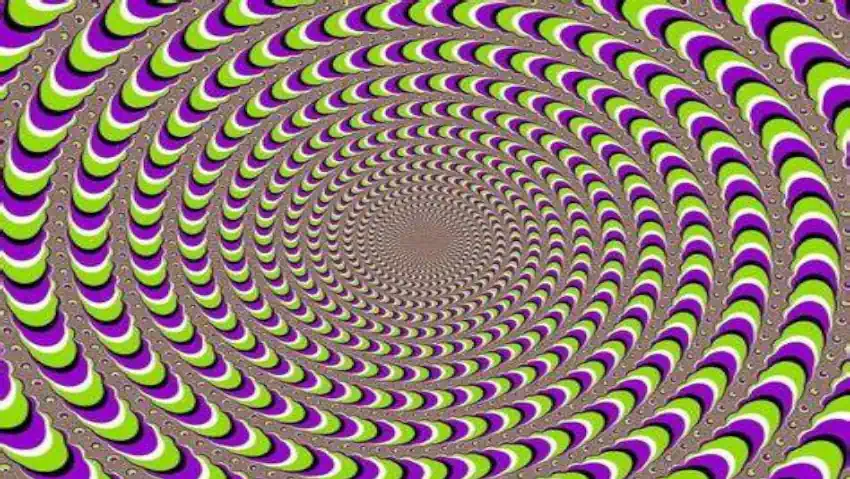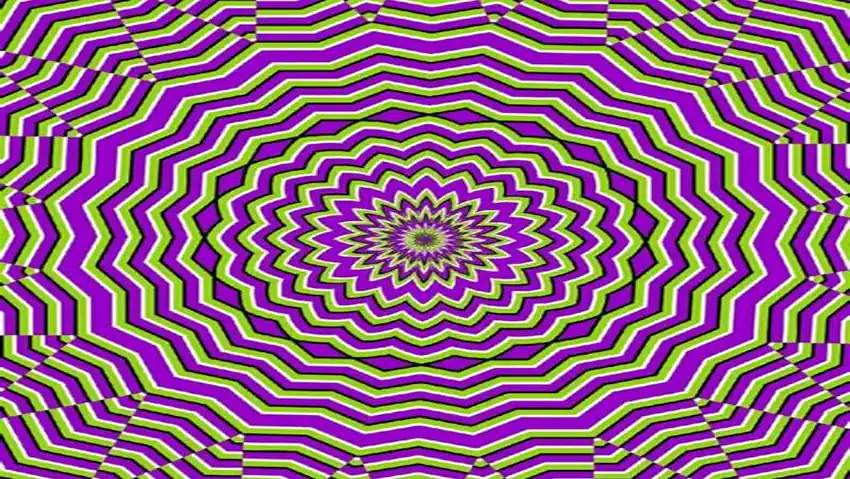Table of Contents
Introduction to Optical Illusions GIF
Optical Iillusions GIF has captivated human minds for centuries, offering a glimpse into the intriguing interplay between perception and reality. Defined as deceptive images that play tricks on our eyes, these illusions often leave us questioning the boundaries of visual understanding.
Historical Perspective
Early optical illusions
The fascination with optical illusions dates back to ancient civilizations, where artists cleverly incorporated visual tricks into their works to engage viewers. This historical journey paved the way for the evolution of illusions in art.
Types of moving optical illusions gif
Geometrical illusions
These illusions manipulate shapes and patterns, challenging our perception of spatial relationships. From the famous Penrose stairs to the impossible triangle, geometrical illusions continue to baffle and amaze.
Ambiguous illusions
Ambiguous illusions present images with multiple possible interpretations, keeping the viewer in a perpetual state of uncertainty. The classic example is Rubin’s vase, where the mind toggles between a vase and two faces.
Motion illusions
Motion illusions exploit the brain’s struggle to process rapid movements, creating mesmerizing effects. The spinning dancer, seemingly rotating in both directions, is a prime example of this category.

The Science Behind the Illusions
Understanding optical illusions requires delving into the intricacies of how the brain interprets visual stimuli. The cognitive processes involved reveal the marvels of neural perception.
Famous Optical Illusions
Escher’s impossible constructions
Maurits Cornelis Escher’s intricate artworks defy the laws of physics, featuring staircases that loop endlessly and structures that seem physically impossible.
Rubin’s vase
Danish psychologist Edgar Rubin’s iconic vase or face illusion exemplifies the duality of perception, where the mind oscillates between recognizing a vase or two faces in a silhouette.
The spinning dancer
An internet sensation, the spinning dancer GIF presents a figure that appears to rotate both clockwise and counterclockwise simultaneously, challenging the viewer’s visual cognition.
Optical Illusions in Everyday Life
Advertising and design
Marketers and designers leverage optical illusions to create attention-grabbing visuals that leave a lasting impact on consumers. Logos, advertisements, and product packaging often incorporate these tricks to stand out.
Psychological impact
Beyond aesthetics, optical illusions stimulate the mind, prompting a cognitive engagement that extends beyond passive observation. This psychological impact has implications for various aspects of daily life.
Mesmerizing GIF Gallery
Prepare to be astounded as we present a curated gallery of mesmerizing optical visions in GIF format. These moving images bring static visions to life, adding a redundant subcaste of seductiveness.
Creating Your Optical Visions
DIY systems and tools
Unleash your creativity by experimenting with do-it-yourself optic vision systems. Simple tools like glasses, paper, and labels can be converted into witching visions with a bit of imagination.
Tips for Effective Visions
Master the art of vision creation with practical tips, from choosing differing colors to manipulating shapes. Creating your optic vision becomes an instigative adventure with these expert suggestions.

Optic Visions in Digital Media
Social media trends
In the period of digital content, optic vision finds a new home on social media platforms. Viral challenges and trends showcase the internet’s collaborative seductiveness with mind-bending illustrations.
Viral visions
Explore the visions that took the internet by storm, from dress-color debates to perceptual mystifications that sparked heated conversations online. These viral sensations punctuate the universal appeal of optic vision.
The Impact on Brain Health
Cognitive benefits
Engaging with optic vision provides cognitive benefits by stimulating neural pathways and enhancing visual perception. Regular exposure to similar stimulants can contribute to internal dexterity and creativity.
Pitfalls and limitations
While optic vision offers cognitive benefits, inordinate exposure may lead to visual fatigue or discomfort. It’s essential to strike a balance and be aware of individual perceptivity.
Common Misconceptions
Debunking popular myths
Separating fact from fabrication, we debunk common misconceptions girding optic visions. Understanding the wisdom behind these marvels dispels unsupported beliefs and enhances appreciation.
The Future of Optical Illusions
Technological advancements
Arising technologies, similar to stoked reality and virtual reality, open new avenues for passing optic visions. The emulsion of art and technology promises a future where visions transcend traditional boundaries.
Cultural inventions
Contemporary artists continue to push the boundaries of optic vision art, experimenting with new mediums and ways. The evolving geography of cultural expression ensures that optic vision remains a dynamic and evolving field.
Conclusion
As we navigate the world of optic vision, it becomes apparent that these witching marvels are more than bare visual tricks. They represent a confluence of art, wisdom, and psychology, leaving an unforgettable mark on mortal perception. Embrace the enchantment of optic visions and explore the bottomless possibilities they offer.
